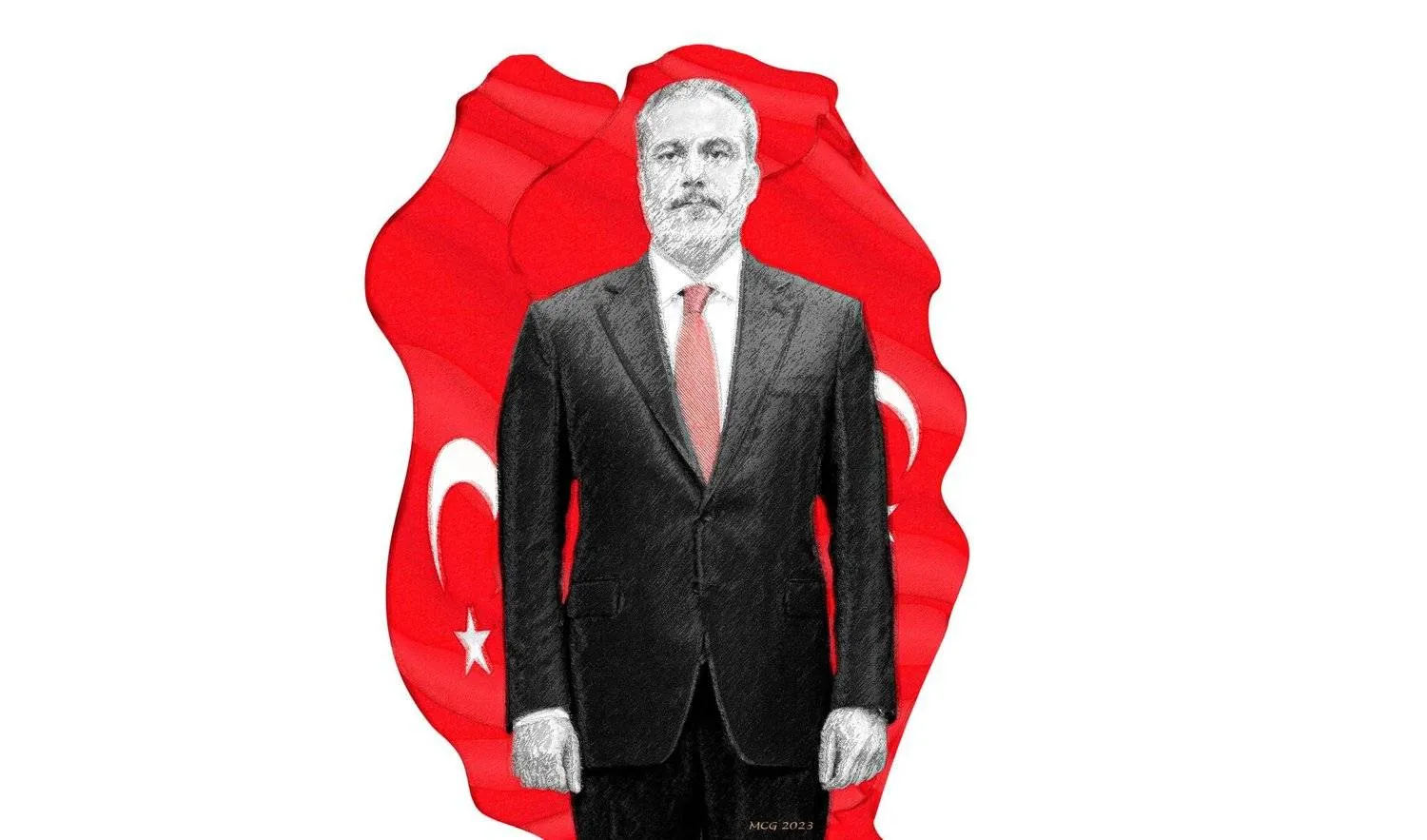Former Turkish intelligence chief Hakan Fidan’s inclusion as a minister in President Recep Tayyip Erdogan's newly-formed government did not come as a surprise to the general public.
This anticipated appointment was rooted in Fidan’s longstanding aspiration for political involvement, evident when he sought Erdogan’s nomination for parliamentary elections in 2015.
However, the surprise lay in the portfolio he assumed: The Ministry of Foreign Affairs.
Traditionally held by diplomats rather than security officials, this appointment caught many familiar with Fidan off guard.
Yet, they had no absolute astonishment as they expected him to succeed in making a significant shift in Turkish foreign policy, especially concerning countries classified as “adversaries.”
A great deal has been written about Israel’s “hostility” towards Fidan, who was accused by The Washington Post in 2013 of exposing the identities of ten Israeli spies to Iran.
Perhaps one of the most explicit remarks came from Erdogan, describing Fidan as my “black box and secret keeper.”
“He and those with him shape the future of Türkiye,” the president had stated.
Incidentally, it is believed that Fidan was the initial discoverer of the conspiracy to topple the Turkish government in 2016.
Turkish officials in close proximity to Erdogan disclosed to Asharq Al-Awsat that Fidan made efforts to contact the president and alert him but encountered difficulty due to Erdogan’s absence on a family vacation.
Consequently, Fidan reached out to one of Erdogan’s sons-in-law and conveyed the information to him.
It is said that Türkiye’s new top diplomat is the one who advised Erdogan to appear on social media platforms to mobilize the masses at the time of the attempted coup.
According to a Turkish source, there is a new policy emerging in the country under Fidan's leadership, aligning with the British system.
In Erdogan’s new government, the foreign minister comes from the intelligence sector, the defense minister from the military, and the interior minister from the governing administration, particularly the state governors.
Fidan’s anticipated success stems from his adeptness at leveraging his relationships and information.
The newly appointed foreign minister had served as the “link” and contact point with countries that had adversarial governments towards Türkiye, such as Syria and Egypt, as well as with some countries where relations were marked by competition, like Iran.
According to sources closely following the matter, Fidan initiated broad negotiations with Syria recently, leading to personal meetings with Syrian officials.
Former director of the Lebanese General Security agency, Abbas Ibrahim, sees Fidan’s appointment as a step in a positive direction for improving Turkish-Syrian relations.
According to Ibrahim, who has worked with Fidan on several issues and maintains an ongoing professional friendship, Fidan is a highly pragmatic individual who possesses an in-depth understanding of the intricacies of the Syrian matter.
Ibrahim revealed that Fidan recently held meetings with Syrian officials, emphasizing that “he understands them, and they understand him.”
Fidan is considered to have a “remarkable ability to initiate trust-building with the Syrian side,” as he has worked on various aspects such as security, politics, and the military concerning Türkiye’s presence in Syria.
Speaking about Fidan’s interactions with Syrian officials, Ibrahim highlighted their efforts to “resolve Turkish-Syrian disagreements on Syrian territory,” but unfortunately, this resolution has not been implemented by Turkish politicians specifically.
Fidan enjoys an intriguing biography that emphasizes practicality over personal details.
He remains a mysterious figure to the Turkish public, with limited public appearances apart from his acceptance speech as a minister.
However, those familiar with his background recognize his remarkable determination.
He spent 15 years in the military, starting as a low-ranking soldier and ending as a non-commissioned officer.
Fidan is married and a father of three children. He was born in the capital city of Ankara in 1968.
He studied and graduated from the Infantry School in 1986. He gained practical experience in the field of intelligence and worked between 1986 and 2001 in the “Rapid Response Unit” of the North Atlantic Treaty Organization (NATO).
He also worked in the branch of rapid information gathering in Germany.
















